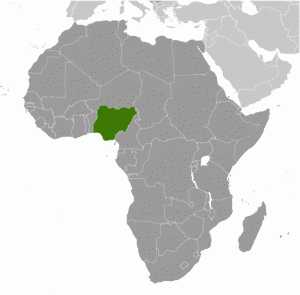May 27
Today is Children’s Day in Nigeria. Why May 27? No clue. Some Nigerian sites purport that May 27 is International Children’s and Youth Day as declared by UNICEF, but Nigeria appears to be the only country to do so. The UN celebrates Universal Children’s Day on November 20. Dozens of other countries, including almost all former Soviet Republics, celebrate on June 1.
May 27 is coincidently the anniversary of the death of Indian Prime Minister Jawaharlal Nehru, whose birthday (November 14) is observed as Children’s Day in India.
May 27 is also the day in 1967 that General Gowon split Nigeria from four provinces into twelve, three days before the outbreak of the Nigerian Civil War.
In terms of population, Nigeria is even larger than Russia. About half of its 150 million people are 18 or younger. The average age women get married is 17. So you see, kids grow up fast in Nigeria.
Growing up fast is a sadly a necessity, as the average life expectancy in Nigeria is only 47, according to the World Factbook, despite the fact that Nigeria is one of the world’s largest oil-exporters. In fact, oil accounts for 80% of the national budget. Oil revenues come at a devastating price though. Nigeria experiences the equivalent of an Exxon Valdez oil spill every year.
“Indeed, a half century of oil exploration — and, experts say, exploitation — has earned the Niger Delta a dubious distinction: Environmentalists call it the most polluted ecosystem on Earth.”
— Nigerian Oil Spills Make Exxon Valdez Look Like Drop in the Bucket
On the bright side, the International Monetary Fund ranks Nigeria as the third fasting growing economy in the world, behind China and India. Others disagree. [Lying With Statistics: Nigeria as 3rd Largest Economy]
One thing people tend to agree on. Nigerians—both children and adults—have a reputation for being among the friendliest and most hospitable people on earth. Nigerians believe in large extended families that form the foundation for a nurturing support system for children.
The extended support system and ancestral traditions may be what has helped Nigerian communities survive everything from colonization to coups and corruption. Whether Nigeria’s latest purported economic boom will translate to better health conditions for the its children remains to be seen.
Children’s Day is celebrated across the country by primary and secondary school students with parades and presentations. However, considering the dire situation of children in Nigeria…
“…Children’s Day celebrations must become occasions for serious soul searching, articulation of blueprints or assessment of the process of implementation of child-friendly programmes of governments, not necessarily only occasions for the celebration and showcasing of a few privileged children.”


